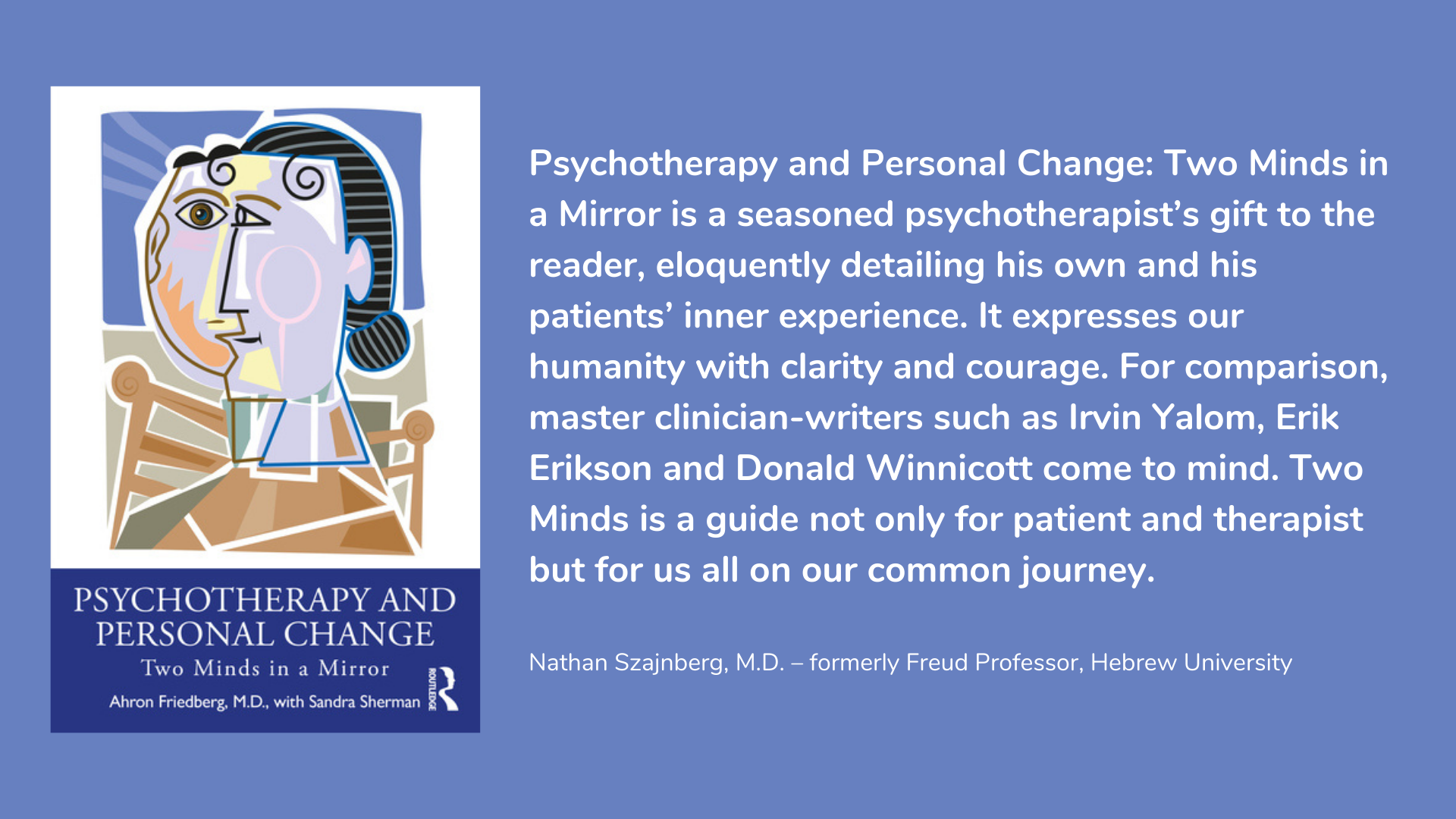Psychotherapy and Personal Change:
Two Minds in a Mirror
Ahron Friedberg, M.D. with Sandra Sherman
Psychotherapy and Personal Change: Two Minds in a Mirror offers unique day-to-day accounts of patients undergoing psychotherapy and what happens during "talk therapy" to startle the complacent, conscious mind and expose the unconscious. It is a candid, moment-by-moment revelation of how the therapist’s own memories, feelings, and doubts are often as much a factor in the process as those of the patient.
In the process of healing, both the therapist and the patient reflect on each other and on themselves. As the therapist develops empathy for the patient, and the patient develops trust in the therapist, their shared memories, feelings, and associations interact and entwine – almost kaleidoscopically – causing each to ask questions of the other and themselves. In this book, Dr. Friedberg reveals personal insights that arose as he recalled memories to share with patients. These insights might not have arisen but for the therapy, which operates in multiple directions as patient and therapist explore the present, the past, and the unknown. Readers will see the therapist – like the patient – as a complex, vulnerable human being influenced by parents, colleagues, and friends, whose conscious and unconscious minds ramify through each other. It is a truism of psychotherapy that in order to commit to the process, whatever the reservations or misconceptions, one must understand that therapy is not passive. The patient must expect to become personally involved with the therapist. The patient learns about the therapist even as the therapist helps the patient to gain insight into him or herself. Psychotherapy and Personal Change shows how this exchange develops and how each actor is affected.
Through specific examples, the book raises the reader’s understanding of what to expect from psychotherapy and enhances his/her insight into therapy that he or she may have had already.
I found Psychotherapy and Personal Change: Two Minds in a Mirror deeply enlightening. As someone who has been in psychodynamic therapy for decades, I of course always wonder what it’s like from the other side-and now I know. Dr. Friedberg illuminates the analytic process with his usual gentle wisdom. (Andrew Solomon, Ph.D. – Professor of Clinical Psychology, Columbia University)

Ahron Friedberg, M.D., is Clinical Professor of Psychiatry at Mount Sinai Icahn School of Medicine, New York, and served twice as President of the American Society of Psychoanalytic Physicians. He is Editor of American Academy of Psychodynamic Psychiatry and Psychoanalysis Forum, Book Editor of Psychodynamic Psychiatry, and a regular contributor to Psychology Today.
Sandra Sherman, J.D., Ph.D., was a Senior Attorney in the U.S. government and Professor of English at two major universities. She is the author of four books and over 60 peer-reviewed articles on 18th-century literature and culture and has co-authored several books on neuroscience. She currently works with scientists and physicians to support their research and writing.





